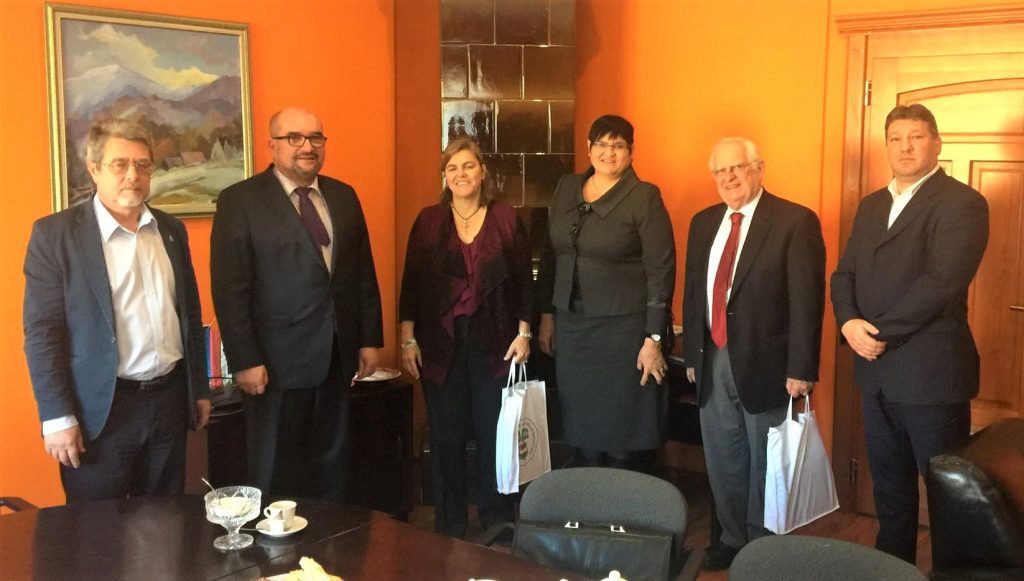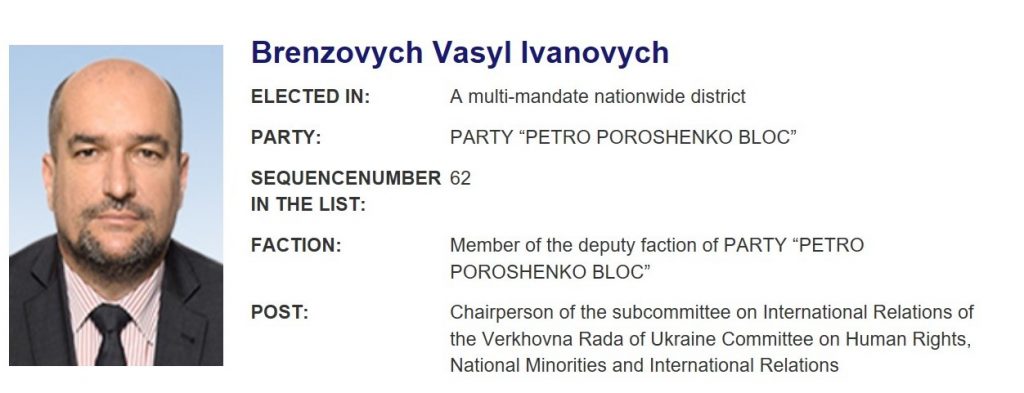The conflict between Hungary and Ukraine is getting out of control. The Orbán Government’s retaliatory blocking of Ukraine’s NATO and EU integration have met unanimous criticism.
The dispute between Hungary and Ukraine began over the so-called Language Law. Ukraine’s Parliament passed legislation to promote the use of the Ukrainian language. Western Ukraine has a multi-ethnic population, among them ethnic Hungarians. The Polish and Romanian minorities have negotiated and received concessions; Hungary (with local lobbyists) has not been willing to compromise. Budapest gave an ultimatum and are linking the matter to Ukraine’s Euro-Atlantic integration efforts. On April 24, Budapest vetoed a planned session of the NATO-Ukraine Commission for the third time (!) and also vetoed the invitation of Ukrainian President Petro Poroshenko to the next NATO summit in July.
Hungary’s NATO partners are stunned. NATO Secretary General Jens Stoltenberg called on Hungary and Ukraine to resolve the language dispute as soon as possible to ensure that the meeting of the Ukraine-NATO Commission will be held at the NATO summit in Brussels this July. Stoltenberg was exceedingly polite noting that “Hungary is a highly-valued ally” that “contributes to NATO collective defense,” but also adding that Ukraine is a “partner” of NATO and a “victim of Russian aggression.”
Poland is also fed up with Hungary’s behavior and suggested leaving Orbán out of the negotiations. Jacek Czaputowicz, Polish Foreign Minister said that it is necessary to conduct “less formal” meetings with Kyiv and Brussels. “We will probably find a solution, another, less formal form so that Ukrainians could take part in the discussion,” he stated.
According to Romania, the language row between Hungary and Ukraine is no justification for blocking the Ukraine-NATO dialogue. State Secretary of the Ministry of Foreign Affairs of Romania Danut Neculaescu said that his government considers it necessary to continue the dialogue with Ukraine in a multilateral format, particularly within NATO, despite the unresolved dispute under Article 7 of the education law. (Read about Romania’s response here.)
Ukraine’s Euro-Atlantic integration is a primary goal of the community of ethnic Hungarians living in the Ukraine. It will provide new opportunities for all the communities of Zacarpathia; yet the Orbán Government, represented by some ethnic Hungarian lobbyists, is working against the integration.

Hungarian American Coalition members in Ukraine. Second left is Mr. Brenzovics, Ms. Andrea Lauer (in the middle), Dr. Ildikó Orosz and Mr. Zsolt Szekeres.
Recently The Hungarian American Coalition, a US non-profit organization, honored Dr. Ildikó Orosz, leader of the Ferenc Rakoczi II Transcarpathian Hungarian Institute located in Beregovo, Ukraine. Before the event the Coalition issued a statement that Dr. Orosz would not be able to come to the US. She had to remain in Ukraine “because the Ministry of Education in Kiev scheduled an important accreditation meeting on exactly the days of her scheduled trip to Washington.”
The award was presented to another ethnic Hungarian official, Dr. Lászlo Brenzovics, president of the Cultural Alliance of Hungarians in Transcarpathia and a Member of the Ukrainian Parliament.

Mr. Brenzovics (with award) in Washington, on his left Edith Lauer and Governor George Pataki. They presented the award.
Mr. Brenzovics described the hardships faced by the Hungarian minority and claimed that new Language Law threatens “the language and citizenship rights of national minorities.” He thanked the Coalition for their lobbying activities and for organizing a series of meetings for him this week with U.S. officials in Washington, DC.
Mr. Brenzovics is a member of the Ukrainian Parliament under his Ukrainian name Brenzovych Vasyl Ivanovich. He received his mandate from the party called Petro Poroshenko Bloc, the same party which sponsored and signed the disputed Language Law.
Political doubletalk is common in Eastern-Europe and politicians willingly “adjust” their rhetoric to satisfy audience expectations. Not surprisingly Mr. Brezovics, a close ally of Hungarian Prime Minister Viktor Orbán, delighted the pro-Orbán audience of the Hungarian American Coalition in Washington D.C.
I find it extremely distasteful that in a Hungarian language interview Mr. Brenzovics is trying to connect the language issue faced by the Hungarian minority in Ukraine to anti-Semitism while he has never raised his voice against the Orbán Government’s institutionalized anti-Semitism and Holocaust falsification. (Read here in Hungarian.)
Recently ethnic Hungarians demonstrated in Zacarpathia. Their concern was not the Language Law but the poor quality of roads. The fact is the majority of the ethnic Hungarian minority is bilingual (in many cases trilingual) and have little problem conducting official business the Ukrainian (or Russian) language. The Language Law effects only a small portion of the ethnic Hungarian population and a negotiated compromise is certainly possible.
The Orbán government’s posturing is contrary to the interests of the Ukrainian ethnic Hungarian community. It stirs up ethnic conflict in the region and openly supports Russian President Putin’s aspirations in Ukraine.
György Lázár
See also:

